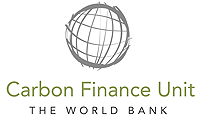Overview
Rapid increase in population, high rate of migration to cities and introduction of disposable items, such as plastic bags, bottles etc. have created serious environmental problems including inadequate solid and liquid waste management, lack of safe water and minimal pollution control in Pakistan. Similar to other big cities in Pakistan, Lahore is witnessing a rapid growth in its population due to rural urban migration from surrounding areas and other parts of the country. The increase in population has exerted immense pressure on the social and physical infrastructure of the city leading to various socio-economic and environmental problems. Inadequate solid waste management has been one of the most visible and pressing problems in the city leading towards unattractive environment, poor sanitation conditions, pollution of water bodies, and general environmental degradation.
The Solid Waste Management Department (SWMD) of City District Government Lahore (CDGL) is the sole authority responsible for the management of solid waste generated in the city. The responsibility of the SWMD consists of the whole process of collection of waste to its satisfactory disposal. However, due to high population growth and the lack of resources, the waste management has become a challenge for CDGL. Accordingly, SWMD prioritized the need to address this issue including the possibility of private sector participation through which waste can be managed and used in an economically beneficial manner.
This arrangement has addressed the need to dispose of solid waste in economically beneficial ways without putting extra burden on the Lahore SWMD. Lahore Compost (Pvt) Limited (LCL) has received the concession from the City District Government, Lahore (CDGL) to process up to a 1,000 ton per day (TPD) of municipal solid waste (MSW). This will be achieved in incremental phases over time until 1,000 tpd is achieved. Available statistics suggest that around 1,900 tons of solid waste per days is generated in Aziz Bhatti Town, Ravi Town and Shalimar Town every working day; out of which around 1,200 tonnes is collected and dumped at the Mahmood Booti Open Dumping Site. All of this solid waste is available for processing and composting. Various studies conducted in the past on the quality and composition of the solid waste suggests that the waste delivered to the project company includes over 55% organic materials.
Composting, in scientifically designed plants, has improved the local environment by reducing health hazards created by the present practice of dumping of waste in open dump sites and also sequester the emission of methane generated in the process of anaerobic decomposition of bio-degradable matter. The project has also resulted in the production of compost, which has been used as a soil conditioner/ fertilizer for improving the quality of soil in and around Lahore.
Benefits
This project is first of its kind under a public private partnership and has contributed towards sustainable development of the municipality. The following are the environmental, economic and social benefits of implementing the project in the area:
- Environmental benefit: The project has prevented uncontrolled GHG generation and emission from waste that would have been disposed of at the open dumping site. Additionally, it has reduced the amount of waste going into the open dumping site thus increasing the lifespan of the waste dumping site.
- Economic benefits: Production of soil improver (compost) to battle soil degradation and boost the farm crop production has also been promoting farmers’ income and contributing to economic sustainable development of the region.
- Social benefits: Around 80 new jobs for locals have been created and staff training to improve skills of the local residents has been delivered. The project has also promoted sustainable development of Lahore Municipality by improving the environment quality and has demonstrated the commercialized practice of composting that could assist Pakistan’s central and southern regions and other countries in meeting the objectives regarding re-use of waste.
